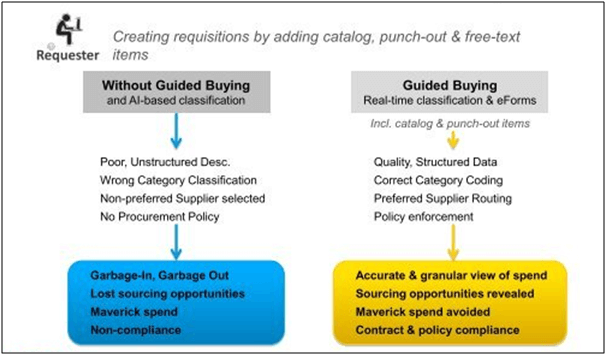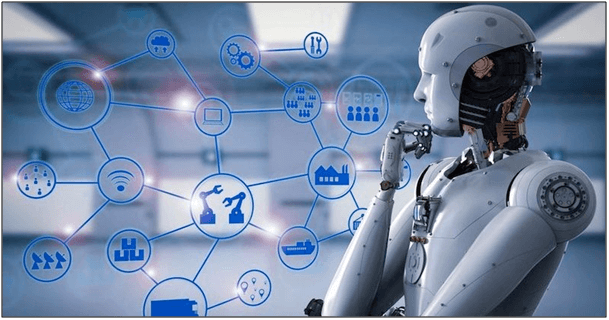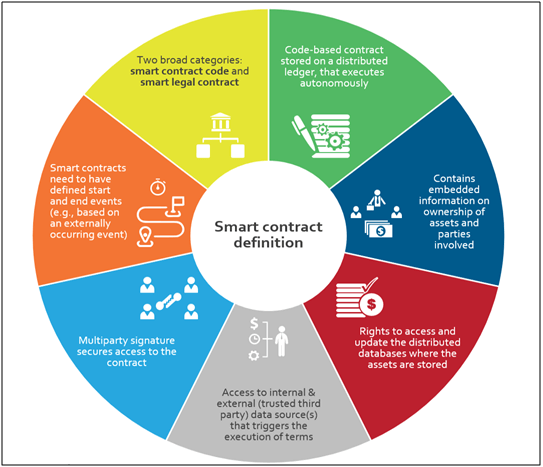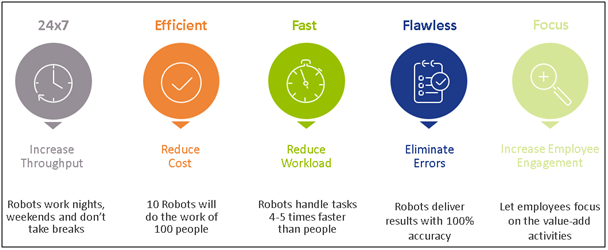Rapid advancements in digital technologies nowadays and the application of these disruptive technologies in Procurement enables strategic sourcing become more predictive, transactional procurement become more automated, and supplier relationship management become more proactive.
It is imperative that procurement organizations understand digital procurement, staying up to date cutting edge trends, technologies and how to effectively utilize them in order to remain competitive and relevant in the market. The purpose is to support proficiency, decrease costs with the real-time insights, data analytics through artificial intelligence (AI) and easy-to-use online tools. This article focus on how AI technologies positively impact on organizations and help procurement professionals to work smarter, better and faster than they could before.
Table of Contents
Artificial Intelligence (AI) in Procurement
Artificial intelligence has been one of the hottest topics in digital technology but it is still a relatively new opportunity for Procurement. AI simulates human intelligence and processes by machines. These processes include learning from constantly changing data, reasoning to make sense of data and self-correction mechanisms to make decisions using smart computer algorithms.
AI software help to design a business’s procurement process by collecting, cleansing, classifying, analyzing expenditure data to identify excessive costs, get rid of duplicate suppliers, bad purchase deals, and sub optimal payment terms that all of which cost a significant amount of money. AI system is able to process large volumes of standard repeated purchases transaction and identify sudden changes, risks, and disruptions much faster than a regular employee.
The Impacts of AI on P2P
The basic Procure to Pay (P2P) processes for managing and records keeping of procurement transactions are already automated to some extent in many organizations. AI will take this to a new level. GEP software solution provides full P2P functionality which is powered by AI from searching items to invoice matching and payment authorization with best-in-class user experience. For example, AI will assist in decision-making when placing orders through a catalogue-type tool ‘guided buying’ and also support in areas such as automated invoice processing, helping systems learn how to handle non-standard invoices or identify potentially fraudulent transactions.

Sourcing Intelligence
The typical sourcing process involves a series of steps from supplier selections, soliciting information, evaluation, setting contract terms that require huge amounts of time, people, effort, and coordination. Intelligent sourcing can break many of the constraints and provide profound benefits to sourcing professionals. AI could support sourcing as it’s done today as well as driving new ways of choosing suppliers and awarding contracts. Under conventional invitation to tender processes, AI-driven tools will suggest which suppliers should be invited to participate in the exercise. Using evidence from past events, AI will help design process, documents and support the evaluation that suppliers have the accreditations or certifications that are required for the work.

AI Data Analytics
AI in sourcing can provide the following benefits to sourcing intelligence processes by six types of data analytics:
• AI descriptive analytics: It provides access to huge spend profile information, data aggregation and data mining from the past. What has happened? This analytics is useful to learn from past behaviours or performances and understand how they might influence future outcomes.
• AI diagnostic analytics: It provides insight into the root causes of an increase or decrease in Total Cost of Ownership. Why did that happen? What is driving raw material prices up? Where is value leakage occurring? The leverage of this analytics can yield great benefits and cost reduction.
• AI predictive analytics: It provides estimation about the likelihood of a future outcome by turning information into forward-looking insights, using statistical models and forecasting techniques to understand the future. What could happen?What contract clauses are likely to create the largest business risk like supplier bankruptcies?
• AI prescriptive analytics: It provides a set of decision options and prescribe a number of different possible outcomes to sourcing professionals before the decisions are actually made by optimization and simulation algorithms. What should we do? What is the best strategy to source against a particular set of requirements? How to minimize risk and savings tradeoffs?
• AI adaptive analytics: It enables to build more customized solutions, focus on engaging with clients and service providers who recognize the need for adjustment to the RFP process. It can recognize abnormal patterns in the sourcing process and provide dynamic insight on cost-effective courses of action.
• AI autonomous analytics: It is the application of machine learning to human judgment for sourcing process executed solely by machines. This new collaboration creates many opportunities to improve decision-making and predictive abilities as the data landscape becomes more and more complex.
Smart Contracts using Block Chain
AI is likely to play an important role at every stage of the contract management process. It is already being used to search the existing contracts in organizations for terms and conditions that may carry a risk for the buyer. AI will assist meticulously in new contracts drafting and suggesting appropriate clauses and conditions.
AI will identify the necessary information needed from the supplier to manage the contract and performance, ensure it is captured, recorded and reported. There will be no risk of missing key dates such as anotice to terminate and upcoming milestones. Placing orders and processing payments with smart contracts are able to automatically identify, negotiate, close deals right across a supply chain without the need of intermediaries such as bankers, lawyers for validating and verifying information which means significant cost and time savings, improves transparency and increases accuracy.
When a set of pre-defined conditions are met, the smart contract will execute itself to deliver a result. For example, when a payment is received, a delivery can be automatically triggered. Information at each step of the shipping process is also tracked and recorded in a secure and accessible database in real time which cannot be modified by any of the parties involved without immediately apparent to others. If something unplanned would happen during the shipping process, the supply chain can be precisely traced back to the point at which the mistake occurred and visible who caused a problem to be held accountable.

Intelligence Risk Management
Staying on top of procurement risks is crucial, not just to ensure business continuity but also for the future health of the company. Supplier and supply-chain risk management has risen up as business has become faster moving, more complex and global. Risk Management is the process of identifying, understanding and grading risks so they can be better managed and mitigated. AI will help procurement to make sense of the huge amount of data and information available in terms of risk management. AI will be able to monitor a range of potential supply chain disruptions, from earthquakes and floods to drought and forest fires, as well as events such as strikes and political instability. It’s important to get the information in advance for procurement to be able to avoid the hazards and take mitigating actions.
Intelligence Spend Analysis
Spend analysis sits at the foundation of procurement’s performance, as it helps companies take a deeper dive into their spend data and gain better visibility over how their procurement function is performing. Actionable insights that can help identify opportunities for faster processes, more consolidated spend, reduced costs and increased efficiency. Develop deeper and more strategic supplier relationships by reducing the number of suppliers i.e., removing redundancies and shifting focus to the benefits of shared opportunities and economies of scale. For example, a better sourcing strategy revealed through spend analysis might need to renegotiate for better pricing, quality, and terms from a preferred supplier with a proven track record and capacity, rather than making multiple smaller purchases from different suppliers with varying levels of quality and performance. The latter choice may save a modest amount of money on the front end, but may lose the company much more to delays, errors, and inefficiencies in supplier management.

Robotic Process Automation (RPA)
Robotic Process Automation (RPA) automates repetitive tasks with rule-based software to improve process efficiency, but has no intelligence. RPA is a type of software that imitates the activity of a human carrying out a task within a process through the user interface of a computer system. These include contract management, category management, third-party risk management, supplier relationship management and financial risk management.
Bots can measure changes in risk exposures and associated controls and determine the causes. Software bots can monitor inventory with accurate stock alerts when levels are running low, and automatically trigger a purchase transaction for a quantity that will build supplies back up to its predefined level.
The diagram depicts the benefits of implementing process automation.

Challenges of AI Adoption
The greatest roadblocks standing in the way to AI adoption in Procurement are the fact that the company culture doesn’t recognize the needs for AI, lack of urgency, budget concern as cost can be a huge factor when it comes to technologies and the message to senior management about the benefits for AI deployment. Other reasons include data quality, consistency for data integration, limited understanding of technology and digital knowledge among procurement professionals and lack of support from executives due to fear of the system will replace their roles. It is difficult to measure and predict the returns on investment in AI but for improvement in quality and efficiency of the business in the long run.
Conclusion
As digital technologies continue to evolve and leading-edge capabilities such as AI and machine learning become more accessible, the opportunities to enhance procurement’s performance and contribution to the business will surge. Procurement professionals to recognize the need to equip them with new and higher-level skills to stay relevant when low-level tasks become automated. With an open-minded and agile mindset, the focus of AI shall reinforce the work of procurement functions and not to replace professionals but to create new roles for procurement to deliver more value to the organizations.
References
Chand Sooran. (2019). “Crowdsourcing Procurement Is Superior to Outsourcing Procurement”.Retrieved from https://medium.com/@chandsooran/crowdsourcing-procurement-is-superior-to-outsourcing-procurement-495041e0b0fe, accessed 14/12/2019.
Joseph Meyer. (2019). “Blockchain & Procurement: A New Revolution?”. Retrieved from https://medium.com/into-advanced-procurement/blockchain-procurement-a-new-revolution-22d0d9bcaede, accessed 15/12/2019.
KajaPolachowska. (2019). “12 challenges of AI adoption”. Retrieved from https://neoteric.eu/blog/12-challenges-of-ai-adoption/, accessed 21/12/2019.
NLPA. (2019). “Sourcing Intelligence”. Retrieved from https://www.nextlevelpurchasing.com/news/purchasing-articles/sourcing-intelligence, accessed 14/12/2019.
Philip Charles Loges, ADPSM. (2019). “Crucial Digital Technologies for Effective Procurement”. Retrieved from SIPMM: https://sipmm.edu.sg/crucial-digital-technologies-effective-procurement/, accessed 13/12/2019.
Pierre Mitchell. (2018). “Artificial Intelligence in Strategic Sourcing”. Retrieved from: https://spendmatters.com/2018/04/09/im-afraid-i-cant-source-that-dave-artificial-intelligence-in-strategic-sourcing/, accessed 14/12/2019.
Raconteur. (2018). “The AI revolution in procurement”. Retrieved from: https://www.raconteur.net/wp-content/uploads/2018/09/AI_Revolution_in_Procurement_HICX-1.pdf, accessed 14/12/2019.
Sievo. (2019). “AI in Procurement”. Retrieved from: https://sievo.com/resources/ai-inprocurement, accessed 14/12/2019.
Tai Cheoh Wei, GDPM. (2019). “Blockchain Technology for the Construction Sector”. Retrieved from SIPMM: https://sipmm.edu.sg/blockchain-technology-construction-sector/, accessed 13/12/2019.

